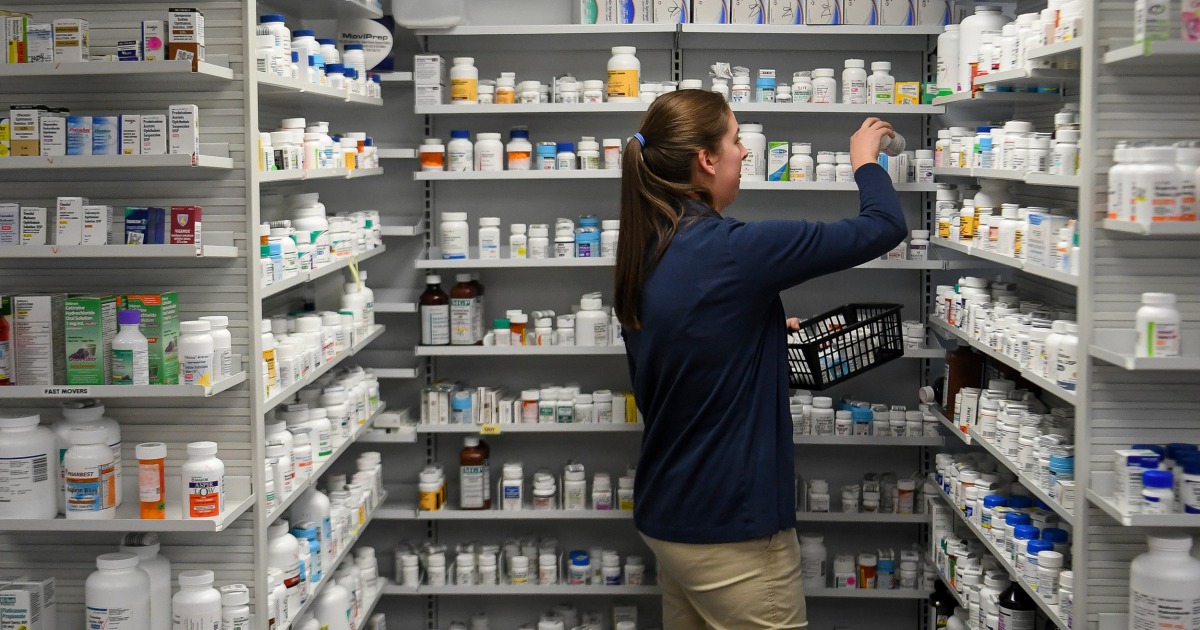
WASHINGTON — Prescription drug prices, state and local tax breaks and Medicare benefits are among the last sticking points in Democrats’ $1.75 trillion Build Back Better bill that President Joe Biden announced new framework for last week.
Party leaders are frantically seeking to ink a deal so they can pass Biden’s social spending legislation and a separate infrastructure package through the House this week.
House progressives, who have blocked a vote on the transportation measure, say they’ll be ready to vote for both bills after the lingering issues have been resolved on the larger one.
“We are now awaiting negotiations among senators on prescription drug pricing and child care and some details on immigration. But the progressive caucus, assuming good resolution of those issues from the Senate side…will be excited to vote for both bills,” Rep. Pramila Jayapal, D-Wash., the caucus chair, said Monday on MSNBC.
Also on Monday, centrist Sen. Joe Manchin, D-W.Va, told reporters he wouldn’t support the bill unless it satisfies some of his concerns about not adding to the deficit or fueling inflation. While the tone of his statement alarmed Democrats, the White House responded that the bill satisfies all those demands.
So, what’s the holdup in talks?
Drug prices
Democrats are “inching closer to an agreement” on adding Medicare drug negotiations into the bill but it isn’t finalized because Sen. Kyrsten Sinema, D-Ariz., a key holdout, hasn’t signed off, sources familiar with the negotiations told NBC News.
The new plan under discussion would allow Medicare negotiations for outpatient doctor visits and prescription drugs and impose a $2,000 cap for seniors, Senate Finance Chair Ron Wyden, D-Ore., said Monday. He said it would “redesign” drug policy so that “pharmaceutical benefit managers can’t game the system,” adding that “every insulin product” would be low cost.
Wyden said there were some “outstanding issues,” including on market exclusivity for brand name drugs, but expressed confidence the revised plan would win 50 Senate votes.
Policies to lower drug costs have been a priority of Biden and Democratic leaders but were excluded from the White House framework released last week, amid resistance from a small group of Democrats and aggressive lobbying from big pharma.
Multiple sources said there would be a mandatory 50 percent rebate between 12 and 16 years and 75 percent rebate after 16 years. Two sources said the negotiations would be limited to drugs each year that aren’t exclusive and are off patent.
That’s a narrower policy than many Democrats had wanted. It wouldn’t raise nearly as much as the original plan, which was estimated to save about $700 billion, and also drew objections from Sen. Bob Menendez, D-N.J., and four House Democrats.
SALT cap
A policy to lift the $10,000 cap on state and local tax (or “SALT”) deduction will be included in the proposal, said House Ways & Means Chair Richard Neal, D-Mass.
But it’s still unclear what that would look like. Party leaders are discussing a two-year repeal of the cap, two aides familiar with the negotiations said, which would cost about $156 billion, according to a January estimate by the Joint Committee on Taxation. One source said that wasn’t final.
A group of Democrats from high-tax New York and New Jersey, led by Rep. Tom Suozzi, D-N.Y., have demanded relief from the SALT cap and such a policy may be needed to win the votes for the bill.
Medicare benefits
The White House framework included a Medicare benefit expansion to cover hearing aids. But it excluded two other demands of Sen. Bernie Sanders, I-Vt. — dental and vision benefits — in order to keep the price tag down to $1.75 trillion.
Sanders, a pivotal vote on the bill, has not said whether he’ll support it with those omissions.
Dental coverage is the most expensive of the three, and party leaders doubt they can fit in the package. Some have floated vouchers as a workaround to guaranteeing those benefits, although House Democrats are skeptical.
“We’re continuing those discussions,” Wyden said, pointing out that the outcome would be “pegged” to making sure expenditures and revenues match up.
Immigration
House Democrats are at odds about how to handle the thorny issue of immigration, according to two sources.
Some want a path to legal status for so-called “Dreamers,” Temporary Protected Status recipients and other categories of undocumented people, a 2020 election promise many Democrats made who see this bill as the last chance to deliver.
But politically at-risk lawmakers are reluctant to vote for a bill that includes legalization. These members don’t want to suffer the Republican attacks for a provision that many believe is unlikely to survive the Senate.
The White House endorsed $100 billion for immigration changes in its framework, which would bring the cost to $1.85 trillion. Senate Majority Whip Dick Durbin, D-Ill., said Democrats would be ready as early as Tuesday to make their case for a new policy to the parliamentarian after two earlier proposals were rejected.
Source: | This article originally belongs to Nbcnews.com









